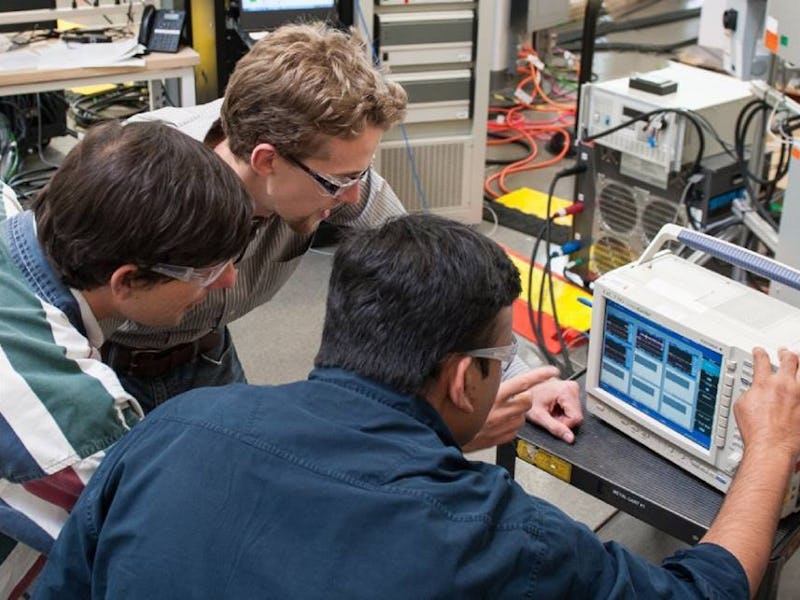Belgium's Red Electrical Devils Win Solar Energy "Little Box Challenge"
For making an iPad-sized solar inverter, they have won $1 million.

One of the major things keeping solar power from being the dominant way the world produces energy is large inverters needed to convert power from the panel to the grid. So Google teamed up with IEEE Power Electronic Society and the National Renewable Energy Laboratory (NREL) to host the Little Box Challenge: a global competition to create the smallest, most efficient inverter possible for a grand prize of $1 million.
On Monday, Google and IEE announced their winner: A Belgian team from CE + T Power that goes by the name “Red Electrical Devils” (a play off of Belgium’s national soccer team). The team blew the competition out of the water with an inverter the size of a tablet, ten times smaller than the commercial inverters out today. (Most are about the size of a picnic cooler.)
The Red Electrical Devils are walking away with their $1 million, but the world gets their own benefits, too. Their invention will likely change the way we think about solar power.
To get why, it’s first important to understand exactly what an inverter does:
Inverters are a crucial part of using solar power in any serious capacity. They take the power that solar panels create — which only comes in direct current (DC) form — and convert it into alternating current (AC), the only form that every household plug recognizes. Without an inverter, all that power would just sit idly without anywhere to go.
The competition required the inverter to operate at a minimum of 50 watts per cubic inch. Which was a small task for the Red Electrical Devils, who invented an inverter with the power almost three times that at 143 watts per cubic inch.
For perspective, even the folks at Google had some doubts about this one.
“Impressively, the winning team exceeded the power density goal for the competition by a factor of 3, which is 10 times more compact than commercially available inverters!” Google wrote on their research blog. “When we initially brainstormed technical targets for the Little Box Challenge, some of us at Google didn’t think such audacious goals could be achieved.”
The Little Box Challenge launched in July of 2014 and had immediate appeal. Around 2,000 teams from around the world registered for consideration, and by October 2015, that number had been whittled down to 18. Those 18 teams went through 100 hours of real-life simulations — converting DC power from solar panels in the typical up and down cyclical pattern of normal energy use.
Smaller, cheaper inverters mean more solar powered homes and more solar energy in remote places. And thanks to the Red Electrical Devil team, the world is one step closer to universal renewable energy.